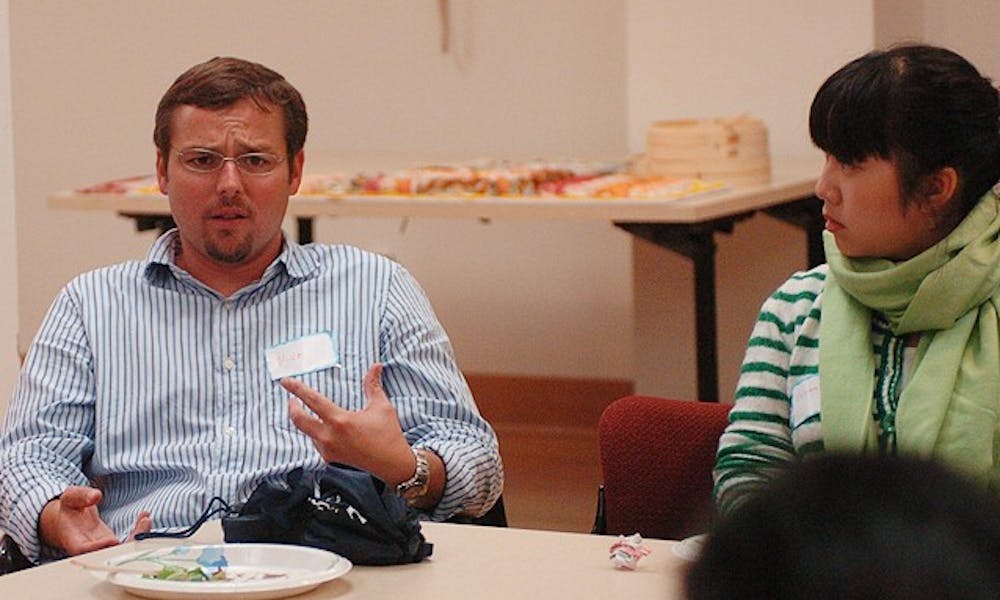James Citrin, an author who studies leadership, has interviewed more than 3,000 top business executives in addition to athletes, politicians and musicians—including Lance Armstrong and Bono.
And Nov. 19, he sat down to have dinner with Duke students.
Citrin is one of many well known people who have come to Duke as part of Duke Conversations. The program, which has been in place for four years, pays student-nominated guests to come to the University to speak with students over dinner and in other venues.
Following a review by members of the Duke community, the guest selection process was overhauled at the beginning of the semester, expanding the committee that reviews guests and making the application process more difficult. Now, a committee of students and staff reviews the guest nominations and selects who will be invited.
Deborah Hackney, assistant director for student organizations and leadership in the Office of Student Activities and Facilities, said there were 71 guest nominations this Fall and 59 for the Spring—a slight decrease from previous years. But she said the decrease is not a problem. She would rather have fewer nominations of higher quality than have more nominations of lower quality, she said.
“The bar was raised,” Hackney said. “One of the reasons we went into review was because there were some folks coming that weren’t of the caliber that the program wanted to fund. And so once you raise that bar, I think the nominations that you don’t see are the ones that were inappropriate in the first place.”
The number of conversations has decreased this year in part because of the increased selectivity and in part because the program is working to cut spending. Last year, 85 conversations were held, but Hackney estimated that only 40 will take place this year. Instead of receiving $150,000 as in past years, the program received about $100,000—the amount of money it actually used last year, Hackney said. She said the program is avoiding paying for extravagances such as dinner at the Washington Duke Inn and Golf Club, adding that guests have dinner on campus instead.
A typical conversation costs between $1,000 and $2,000, and bringing an international guest may cost more, Hackney wrote in an e-mail. Between 5 and 10 percent of the Duke Conversations budget goes to advertising and administrative costs, she added.
“In these financial times, good financial stewardship is important, and so if we are going to be spending this money then it should be spent wisely,” Hackney said.
Michael Gustafson, associate professor of electrical and computer engineering who serves on the selection committee, said students have responded to the program’s selectivity by doing a good job filling out the nomination applications. He added that he enjoys reading the applications, even if they are long.
“The fact that there is a more rigorous process has made it so that the applications have had to go up a notch,” Gustafson said. “If you give a Duke person a harder thing to do, they will do the harder thing and do it better.”
Of 59 Spring conversation nominees, committee members approved 10 guests and wait-listed five guests at their meeting Nov. 18, Hackney said.
Sophomore Chelsea Ursaner, a member of the selection committee, said the student perception of Duke Conversations has changed over this semester partially because of the new selection process. Students now view the program as an opportunity to interact with interesting people, she said.
“In the past, I think that a lot of people saw it as an easy way to get funding to get someone to come, and now... people look to Duke Conversations... as a program that is bringing really good people,” Ursaner said. “I think a lot more students are looking at it not to be hosts but to attend conversations.”
Get The Chronicle straight to your inbox
Signup for our weekly newsletter. Cancel at any time.

